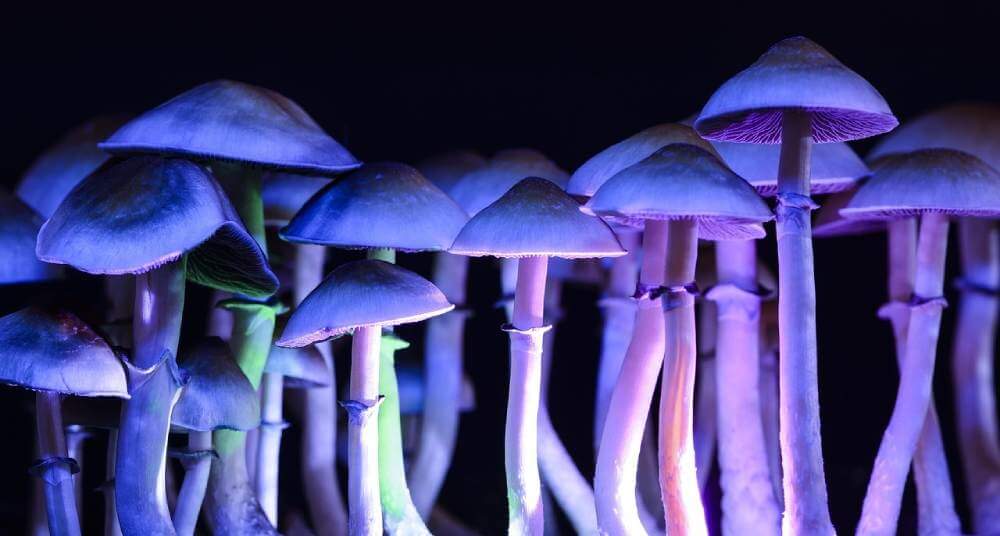Introduction:
In a world facing pressing environmental, societal, and mental health challenges, the potential of psilocybin containing mushrooms to catalyze positive change is gaining significant attention. Renowned mycologist and author Paul Stamets has been at the forefront of advocating for the transformative power of psilocybin. In his thought-provoking lecture, “How Psilocybin Can Save The World,” Stamets explores the potential applications of psilocybin in addressing these global issues. In this blog post, we will delve into the key insights from Stamets’ lecture and discuss the potential of psilocybin to promote environmental stewardship, mental well-being, and interconnectedness.
It should be noted that the scientific community has long been aware of the potential benefits of psilocybin containing mushrooms. However, as a result of the actions of lawmakers in America and other countries, scientific research was halted decades ago. It is only in very recent years that researchers have been allowed to continue studying the potentially life-changing benefits of this compound.
Psilocybin and Environmental Stewardship:
Stamets highlights the symbiotic relationship between mushrooms, including psilocybin-containing species, and the environment. Psilocybin mushrooms play a crucial role in ecological processes, such as nutrient cycling and forest regeneration. By recognizing and preserving the habitats of these mushrooms, we can contribute to the health and sustainability of ecosystems.
Stamets also highlights the potential of mycoremediation, a process that utilizes mushrooms to break down and detoxify pollutants in the environment. Psilocybin-containing mushrooms, with their unique ability to decompose complex compounds, offer promising applications in cleaning up contaminated soil, water, and even oil spills. This approach showcases the potential of psilocybin to contribute to environmental restoration and inspire sustainable practices.
Psilocybin and Mental Well-being:
Stamets emphasizes the therapeutic potential of psilocybin in addressing mental health challenges that plague society. Research has shown promising results in the use of psilocybin-assisted therapy for conditions such as depression, anxiety, PTSD, and addiction.
Psilocybin’s ability to induce mystical and profound experiences can facilitate introspection, increase empathy, and promote emotional healing. It has been observed to dissolve rigid thought patterns and expand consciousness, leading to transformative insights and long-lasting positive changes in individuals’ lives.
Stamets suggests that incorporating psilocybin into mental health treatment protocols may revolutionize the field and provide new avenues for healing and personal growth. By embracing psilocybin’s potential, we can promote mental well-being on an individual and societal level.
Psilocybin and Interconnectedness:
Stamets explores the notion that psilocybin experiences can evoke a deep sense of interconnectedness with nature and all living beings. This feeling of unity and ecological awareness has the potential to inspire a more sustainable and compassionate approach to our relationship with the natural world.
By embracing the lessons learned during psilocybin experiences, individuals may develop a profound appreciation for the interconnectedness of all life forms. This expanded consciousness can lead to a shift in values, influencing choices and behaviors that prioritize environmental conservation, biodiversity protection, and sustainable living practices.
Scientific Research Supporting Psilocybin’s Potential:
To reinforce Stamets’ insights, let’s explore scientific studies that support the potential of psilocybin:
Study 1: A study published in the Journal of Psychopharmacology explored the effects of psilocybin-assisted therapy on end-of-life anxiety in cancer patients. The research showed significant reductions in anxiety, depression, and improved quality of life in participants following psilocybin sessions. These positive effects were sustained months after the experience.
Study 2: A systematic review published in The Lancet Psychiatry analyzed the efficacy of psilocybin in treating depression. The review found evidence of significant and sustained reductions in depressive symptoms after psilocybin-assisted therapy, highlighting its potential as a breakthrough treatment for depression.
Study 3: A study conducted at Imperial College London investigated the impact of psilocybin on brain connectivity and ego dissolution. The findings revealed that psilocybin induced altered states of consciousness, increased brain connectivity, and a temporary dissolution of the sense of self. These changes were associated with positive psychological outcomes and increased well-being.
Micro-dosing with Psilocybin:
Micro-dosing involves taking very small, sub-perceptual doses of psilocybin on a regular schedule, typically every few days. The purpose of micro-dosing is not to induce a full psychedelic experience but to benefit from the subtle effects that can enhance cognition, creativity, mood, and overall well-being.
Emerging studies suggest that micro-dosing may offer several potential benefits:
- Enhanced creativity and cognitive function: A study published in the Journal of Psychopharmacology found that micro-dosing with psychedelics, including psilocybin, was associated with increased creativity, improved problem-solving abilities, and enhanced cognitive flexibility.
- Mood enhancement and emotional well-being: Research conducted at Imperial College London demonstrated that micro-dosing with psilocybin led to improvements in mood, emotional stability, and overall well-being. Participants reported reduced symptoms of depression and anxiety.
- Increased mindfulness and openness: A study conducted by the University of Toronto found that micro-dosing with psilocybin was associated with heightened mindfulness and a greater sense of openness to new experiences. Participants reported increased feelings of connectedness and empathy.
Macro-dosing with Psilocybin:
Macro-dosing involves taking higher doses of psilocybin to induce a full psychedelic experience, often accompanied by profound shifts in perception, introspection, and spiritual insights. These experiences are typically facilitated in a therapeutic or ceremonial setting under professional guidance.
Research suggests that macro-dosing with psilocybin may offer several therapeutic benefits:
- Alleviating treatment-resistant depression: A groundbreaking study published in the Journal of Psychopharmacology demonstrated that a single session of psilocybin-assisted therapy led to significant and lasting reductions in treatment-resistant depression. Participants reported improvements in mood, increased emotional connection, and enhanced overall well-being.
- Reducing anxiety and existential distress in cancer patients: Research conducted at New York University showed that psilocybin-assisted therapy significantly reduced anxiety and existential distress in cancer patients. Participants reported a greater acceptance of their condition and an enhanced quality of life.
- Promoting long-term positive personality changes: A study published in the Journal of Psychopharmacology examined the long-term effects of psilocybin experiences. Participants reported enduring positive changes in their personality, including increased openness, creativity, and a greater sense of well-being. These changes were still evident over a year after the psilocybin sessions.
Conclusion:
The emerging research into psilocybin presents a promising world of potential therapeutic and personal growth benefits. Micro-dosing offers subtle enhancements in creativity, cognition, mood, and well-being, while macro-dosing can facilitate transformative experiences with lasting positive changes. One notable institution contributing to this research is Johns Hopkins University, which has been at the forefront of studying the therapeutic effects of psilocybin.
Johns Hopkins’ groundbreaking studies have demonstrated the potential of psilocybin in various contexts:
- Treating depression and anxiety: Research conducted at Johns Hopkins showed that psilocybin-assisted therapy resulted in significant reductions in symptoms of depression and anxiety in participants with treatment-resistant depression. The effects were found to persist long after the psilocybin session, indicating the potential for lasting benefits.
- Promoting mystical experiences and spiritual well-being: Studies conducted at Johns Hopkins also explored the role of psilocybin in inducing profound mystical experiences. Participants reported a sense of interconnectedness, transcendence, and spiritual significance. These experiences were associated with positive changes in their attitudes, behavior, and overall well-being.
- Addressing addiction and smoking cessation: Johns Hopkins researchers conducted a pilot study that investigated the use of psilocybin-assisted therapy for smoking cessation. The results showed promising outcomes, with a significant proportion of participants achieving long-term smoking cessation after psilocybin sessions.
The research conducted at Johns Hopkins University has significantly contributed to our understanding of the therapeutic potential of psilocybin. It has shed light on its efficacy in treating mental health conditions, promoting spiritual well-being, and addressing addictive behaviors.
Scientific research supports the therapeutic potential of psilocybin in treating mental health conditions and enhancing well-being. However, it is important to note that psilocybin’s use should always be approached responsibly, under professional guidance and within legal frameworks.
As we explore the transformative potential of psilocybin, let us embrace its teachings, cultivate environmental awareness, prioritize mental well-being, and foster a sense of interconnectedness. Together, we can contribute to a more sustainable, compassionate, and harmonious world.
Legal Considerations / Disclaimer: The use of psilocybin-containing mushrooms is illegal in many countries, including the United States. This blog post is for informational purposes only and should not be construed as advocating or promoting illegal activities. It is essential to be aware of and comply with local laws and regulations regarding psilocybin. Always seek professional guidance and prioritize safety and legality in any involvement with psilocybin or related substances.
Check out the Happiness 2.0 Podcast – https://podcast.edwardgdunn.com/




